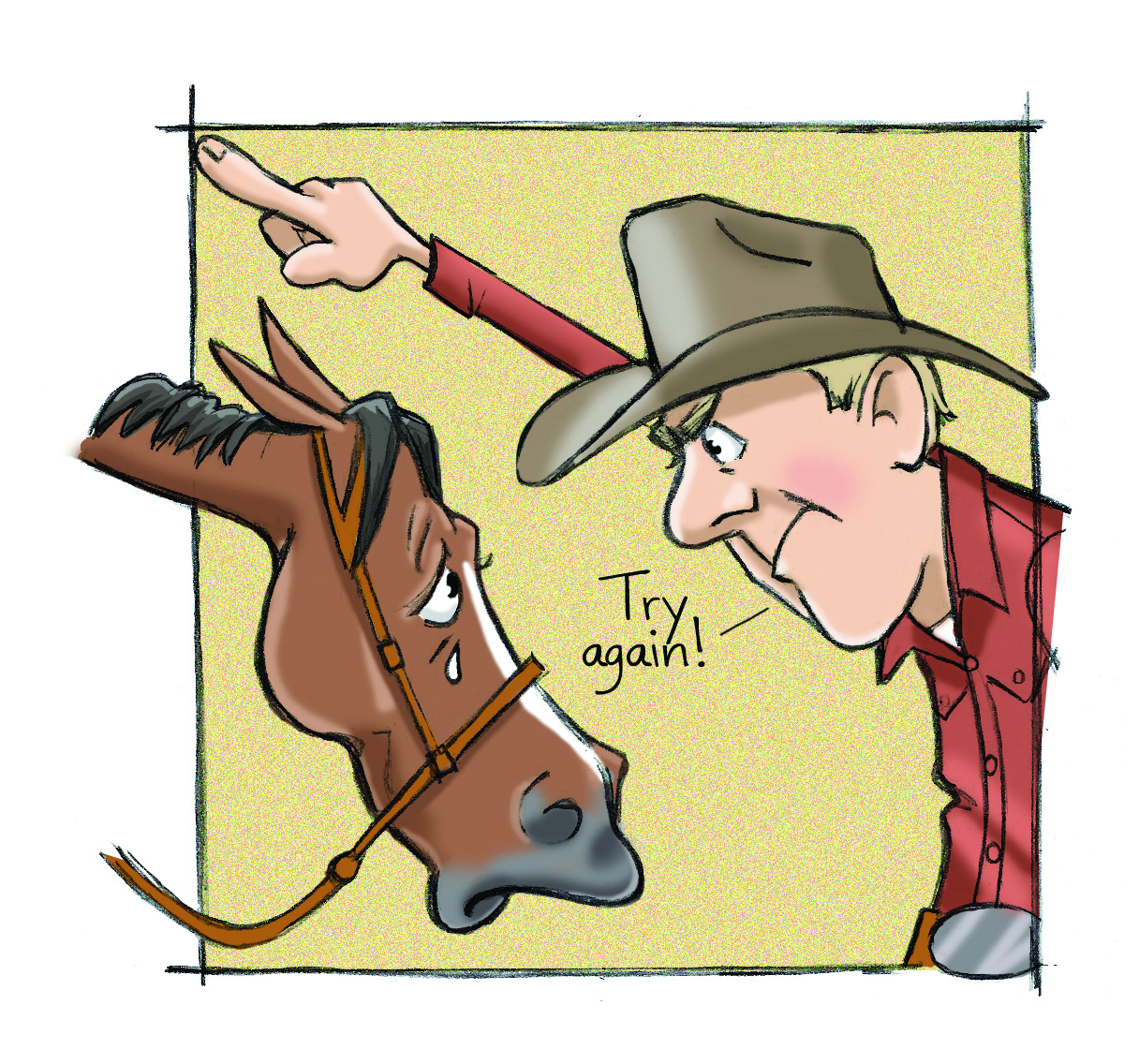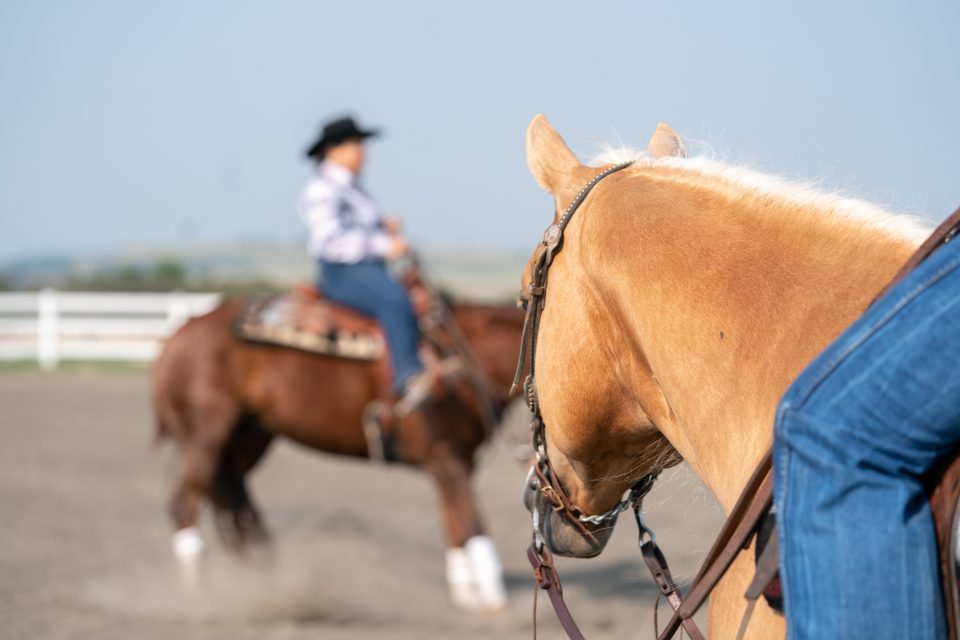Learn to handle the five most common client-trainer conflicts.
By Kelley Forseth, With Alexis Bennett

Dinners; long days and nights at shows; and hours of exchanges about the horse, performances, life, and riding often blur the lines between what’s professional and what’s personal with trainers and clients. When something goes wrong, it can make it difficult to confront the issue because you don’t want to change the relationship. Conflict and difficult conversations never get easier, but you can get better at handling them.
In this series, I’ll analyze five common trainer/client conflicts and the reactions you might have to them, from least and most desirable. Aim for the best response possible when dealing with clients, and know that sometimes it’s not always achievable. They are:
Part 4: Better-Than-the-Rest Billie
Better-Than-the-Rest Billie
The scenario: You unload a client’s new filly from the trailer as she shares about the horse’s pedigree, her siblings’ earnings, and her quiet temperament. This client’s worked with you for years, but this is your client’s first major horse purchase. She’s excited.
A couple months later, the horse isn’t progressing like you’d hoped. Though sights were set on the Futurity, you know the horse doesn’t have what it takes to compete at that level. She’s quiet, willing, and moves well. She’ll make a perfect non pro horse for your client. When you break the news, your client won’t hear it. She insists that you continue as planned. You advise against it; it doesn’t help.
Worst reaction: You don’t trust your intuition. You continue with training as planned and don’t bring it up again. Even as the shows approach, you don’t express your concern. After the first performance goes as you expected—clean, but not memorable—you keep your head down and focus on the next show. After all, the client said she wants her horse to compete at the end of the season as planned.
Why it’s bad: If you continue as planned and your intuition is correct, you all lose. Your client is disappointed and unhappy, you’ve invested time you can’t get back, the horse is done a disservice, and you feel badly for wasting your client’s time and money. This can cause problems with your relationship with your client. Your best marketing is happy clients and success. If she chooses to circulate a poor review, it’s not great marketing.
Better reaction: You respectfully disagree. You tell your client you aren’t comfortable continuing when the horse doesn’t have what it takes. You suggest she take the horse to another trainer and even suggest a few options.
Why it’s less detrimental: You’ve communicated and kept your integrity intact. Rather than shut down and go along with it, you’ve suggested alternatives to make your client happy, even at your own expense. Your client will get the same outcome—training toward a futurity. The outcome may be the same, but you lose your client and the opportunity.
Best reaction: You continue to express your hesitation. You help her understand why you’re making the recommendation by sharing videos of past Futurity winners, as you point out what makes these horses exceptional. You invite her to watch you ride and school her horse at a show. She agrees that another approach is best. Alternatively, she says she understands and appreciates your professional opinion, but that she has her heart set on the Futurity and wants to continue as planned.
Why it’s best: You’ve communicated honestly. You’ve even taken it a step farther to educate her. It’s possible to disagree and still commit to the plan as long as you’re both realistic. Set clear goals about the outcomes and put them in writing so you have a contract of expectations. If she’s willing to invest the time and money in training and prep—even knowing the potential outcome—that’s her responsibility. If she agrees not to continue, you’re able to work with the horse you have to achieve her new goals.
Read the rest of this article at the links above.



